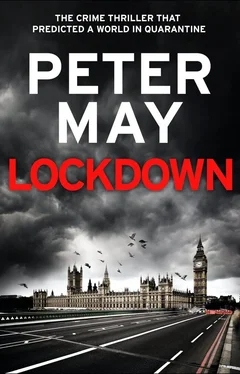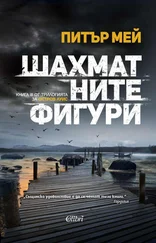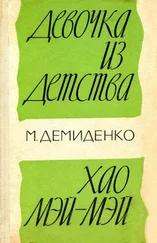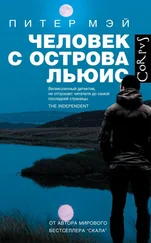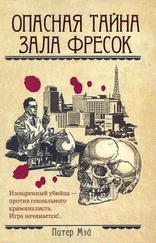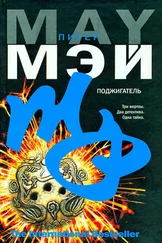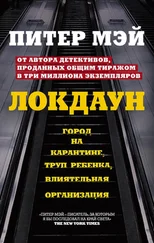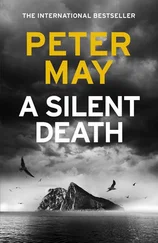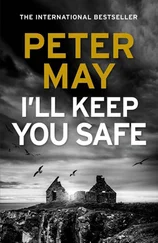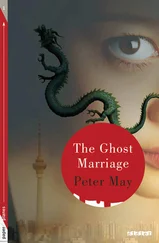At least half of the flats were boarded up, windows broken, others burned out. Crumbling concrete cladding bore the black streaks of insurance fires that for many had been the only way out. Tarmac concourses were strewn with broken glass and empty beer cans, a landscape punctuated by burned-out vehicles, like the carcasses of so many dead animals. The detritus of abandoned households — old mattresses, discarded clothing, broken furniture — was washed up against the ramps and walkways, like seaweed on a beach after a storm. Streetlamps had been smashed, many of them torn down. It would be a no-go area after nightfall, dark and dangerous. This was the brave new world.
MacNeil parked on the street and stood looking through the open gates of the estate. It was hard to believe that anyone still lived here. And yet, he could see, along the covered walkways on each floor, freshly painted doors, and windows with clean, white net curtains. Like the occasional good tooth in a mouth full of decay. Across the road, a multi-storey block had been abandoned. Every window boarded up, rolls of barbed wire dragged around its perimeter.
Glass crunched underfoot as he walked across a children’s play area, where doubtless architect’s drawings would have depicted a happy gathering of multicultural kids kicking a ball about. Even had that ever been a reality, it was long gone.
MacNeil had a strange sense of foreboding as he entered Kazinski’s block. There had not been a solitary sign of life. The world felt like a vessel whose captain had given the order to abandon ship, but nobody had told MacNeil.
The stairwell smelled of urine and stale beer, and something else he couldn’t quite identify. The walls were almost obscured by graffiti. He heard his own footsteps echoing all the way up to the sixth floor. On the second, he turned into the open walkway that ran along the outside of the block, leading to the individual flats. Every second doorway was boarded up. Others had been daubed with red paint, crude crosses warning that this home had been visited by the flu, a strange, frightening throwback to the days of the Plague. What misery, MacNeil wondered, lurked behind these doors?
Kazinski’s flat was number twenty-three. The door had been newly painted. Pillar-box red. To cover up the mark of the flu? Or to guard against it? MacNeil had no way of knowing. There was a polished brass knocker at head height, and he banged it three times. After a moment, he saw the lace curtain twitch in the window to his left.
‘What do you want?’ A woman’s voice came muffled from behind the glass.
‘Police, Mrs Kazinski. I want to talk to your son.’
‘Let me see your card.’ This was a woman used to dealing with cops.
MacNeil took out his warrant card and pressed it against the window. The curtain was dragged to one side, and by the daylight it let in, MacNeil saw the pale, pasty face of a woman in her fifties, features sharp and pinched, the genetic inheritance of generations of poverty. The curtain fell back into place.
‘He’s not here.’
‘Don’t tell me stories, Mrs Kazinski.’ He knew she would not open the door to him, and it would take too long to get a warrant and officers to break it down.
‘He left for work this morning.’
‘He doesn’t start work till midnight.’
‘No, he started at midday. He told me.’
‘Then he lied to you, Mrs Kazinski. I’ve just come from Battersea.’
‘No. He’s a good boy, my Ronnie.’
‘Was he at home last night, Mrs Kazinski, or was he at work?’
She hesitated, clearly not knowing which was the right answer to give.
‘What time did he get in from work this morning, Mrs Kazinski?’
‘I don’t know, it was late. I mean early. Five, maybe six. I was asleep. He was on the five o’clock shift last night. They work twelve hours.’
‘It was his day off yesterday. They told me at the power station.’
‘No!’ He heard the confusion in her denial. The hurt in her voice. Why had her son been lying to her? MacNeil believed now that she was telling the truth. That Kazinski really wasn’t there, and that she didn’t know where he’d gone if it wasn’t to work. ‘What’s he done?’
‘I don’t know that he’s done anything, Mrs Kazinski. I just want to talk to him, that’s all.’
‘You people never just want to talk.’ She was transferring her anger and hurt at her son’s lies and directing them at MacNeil. It was something he was familiar with. It was always the fault of the police when the people you loved got into trouble.
‘You can tell him I was looking for him.’ MacNeil folded his warrant card into an inside pocket. ‘And you might like to ask him what it was he was doing last night when he told you he was at work.’ He thrust his hands in his pockets and headed back along the stairwell, Mrs Kazinski’s imprecations following him along the walkway. But still, she wasn’t going to open her door under any circumstance. Even to abuse him to his back.
A few paces from the stairs, he heard a scuffle of feet, a voice whispering in the darkness beyond, and he stopped in his tracks. ‘Who’s there?’
A skinny youth stepped out into the walkway. His hair was gelled into spikes, and the triangle of a red and blue bandana covered his nose and mouth. His forehead above it was peppered with acne. He wore a hooded sweatshirt that looked two sizes too big for him, and a pair of khaki cargo trousers with the crotch almost at the knees. From a hand crudely tattooed with letters on each knuckle, a scarred baseball bat dangled to the ground. Three other youths, one of them black, stepped out behind him. They all wore bandanas and carried baseball bats or crowbars.
A noise behind him made him turn, and he saw another two young men emerge from a doorway which had been daubed with red paint. He felt the hostility in the eyes that fixed upon him and knew he was in trouble. He glanced over the side of the walkway. Even if he survived the jump he would break both legs.
‘Wot you want wiff Ronnie?’ the acne youth said.
‘We’ve got business,’ MacNeil replied, hoping that Ronnie might be on terms with these boys, and that they would leave him alone if they thought he was a friend of the ex-con.
‘Yeah, right,’ Acne said. ‘You’re the fuckin’ fuzz, aintcha? Fuckin’ rozza.’ MacNeil said nothing. Acne nodded towards MacNeil’s coat pockets. ‘Got ’em onya, ’ave ya?’
‘Got what?’
‘The fuckin’ drugs, coppa. Know what I mean?’
‘I don’t have drugs.’
‘Course you do. They give ’em tcha. All the cops got ’em, din they? Fuckin’ FluKill.’
‘Maybe.’
‘Give us ’em, then.’ He held out his hand.
‘I’ll give you my FluKill if you give me some information. That’s a fair exchange, isn’t it?’ MacNeil tried very hard to keep the tremor out of his voice.
Acne frowned. ‘Wot kinda fuckin’ info you looking for, rozza?’
‘I want to know where Ronnie goes when he’s not at work.
Acne looked at him as if he was insane. ‘You wot?’
‘I want to know where he hangs out.’
‘Sssa Black Ice Club, innit?’ the black youth said.
‘Shut the fuck up,’ Acne told him.
For a moment, MacNeil forgot his plight. ‘In Soho? All the clubs up there were shut down weeks ago.’
‘At’s wot you fink, mate.’ A cold smile narrowed Acne’s eyes. ‘Not that it fuckin’ matters wot you fink, does it?’ He held his hand out again. ‘Cough up.’ And he roared at his own joke. ‘Funny, eh?’
‘Sorry,’ MacNeil said. ‘I’m afraid I lied.’
‘You wot?’ Acne looked perplexed.
‘I haven’t got any FluKill.’ And he swung his left fist full into the boy’s face. He knew he had to take the initiative, catch them off guard, if he was to stand a chance. He felt bone and teeth break beneath his knuckles, and immediately stooped to scoop up the baseball bat as it fell from Acne’s hand. He grasped it with both hands and swung around. The bat, at full extension, caught one of the youths behind him square on the side of the head, and he went down like a sack of coal. The door to MacNeil’s right had been boarded up with plywood. He kicked it as hard as he could, and the sheet of wood splintered into darkness in a cloud of dust. MacNeil plunged through it into the unknown, the voices of his assailants raised in pain and fury at his back.
Читать дальше
